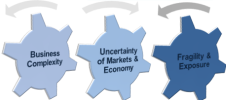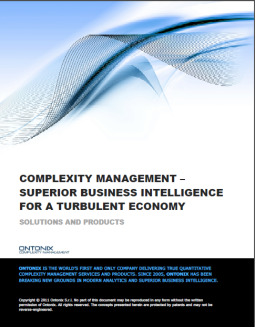Tuesday, 13 October, 2009
 “Since I entered politics, I have chiefly had men’s views confided to me privately. Some of the biggest men in the US, in the field of commerce and manufacturing, are afraid of somebody, are afraid of something. They know that there is a power somewhere so organized, so subtle, so watchful, so interlocked, so complete, so pervasive, that they had better not speak above their breath when they speak in condemnation of it.”
“Since I entered politics, I have chiefly had men’s views confided to me privately. Some of the biggest men in the US, in the field of commerce and manufacturing, are afraid of somebody, are afraid of something. They know that there is a power somewhere so organized, so subtle, so watchful, so interlocked, so complete, so pervasive, that they had better not speak above their breath when they speak in condemnation of it.”
President Wilson was referring to the world’s banking barons! In 1913 the US Federal Reserve was born at a meeting of these banking barons on Jekyll Island in Georgia.
Thank goodness things have moved on since then!!!
I couldn’t resist blogging about this because, even as we speak, the bankers are STILL not doing what they were, allegedly, instructed to do with the public money (so generously given to them by our political representatives) to [1] save the global banking system from collapse [2] minimise the possibility of recession &/or [3] impact of recession upon the populous.
Just to add insult to injury we also have politicians moaning about having to repay the money that they….STOLE from the public purse!!!
Now I know I run the risk of outing myself (again) as a conspiracy theorist but when will our politicians realise that WE KNOW that they and our most senior bankers are two sides of the same coin? No wonder FSA are only effective at the levels at which they can actually regulate.
The only victims of wrong-doing on such a scale are those, considered by “the powers that be” to be expendable, have outlived their usefulness or that run the risk of causing further embarrassment. Apparently this is presenting a problem because there just aren’t enough ministerial, civil service or banking jobs to go around so WE all need to get on and make the best of it.
But before you do why not have some fun with the following table and please feel free to send me any additions or comments. I would like to know into which column each of our “villains” should go and if you felt the action taken was appropriate:
| |
SILLY |
NAUGHTY |
BAD |
ACTION |
| Bankers |
|
|
|
|
| MP’s |
|
|
|
|
| Attorney General |
|
|
|
|
| Speaker of the House of Commons |
|
|
|
|
| Construction companies |
|
|
|
|
| Flavio Briatore/Renault |
|
|
|
|
| BAE Systems |
|
|
|
|
Please feel free to amuse yourself by printing off this piece and cutting out the following cash prize. I wish it could be more BUT there’s a recession on at the minute

No amount of faux honesty at Party conference’s or a succession of policies or manifestos, that amount to little more than “patches”, are really going to fool anyone who knows how the financial world works.
Party political change is not what is required! The sad truth is that we trusted our political and financial leaders to do their jobs. They abused that trust. Disgraced the offices the still hold. Have failed to show any real signs of remorse. Admitted nothing and are, patently, intent on keeping their heads as low for as long as is required before they take up, in a slightly altered landscape (still essentially of their own design) to carry on where they left off.
The only way that CHANGE will take place is if people that care keep on looking for ways to work together to bring it about. There is certainly sufficient will and from the conversations that it spawns can come the means.
I would love to hear some ideas on the subject.















